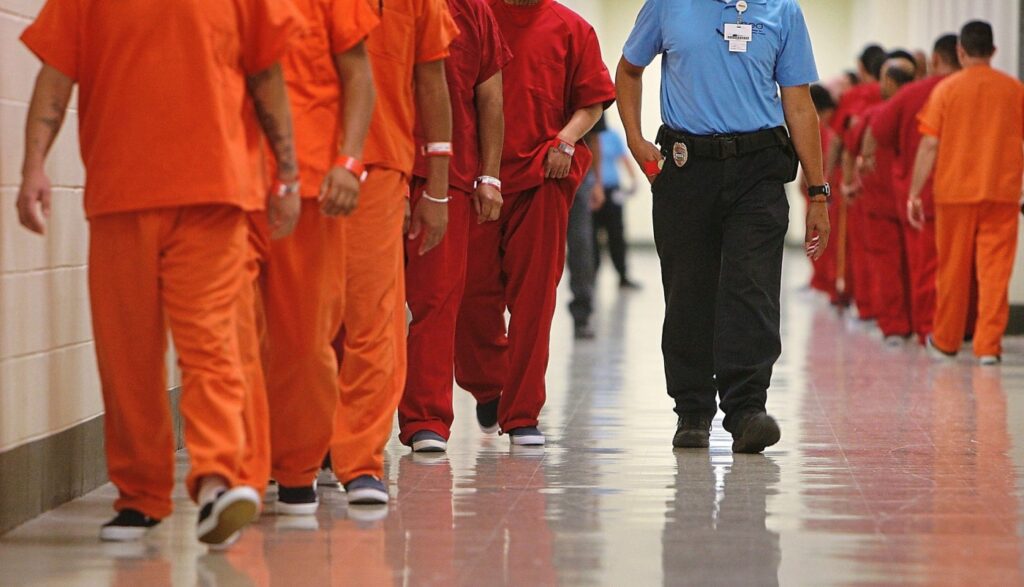
A federal court has approved a landmark settlement barring the U.S. Immigration and Customs Enforcement along with Southern California immigration judges from setting unreasonable bonds for detained immigrants by failing to consider their financial resources.
The settlement, finalized Tuesday, March 29, in U.S. District Court, concludes a class-action suit filed in 2016 and litigated by the American Civil Liberties Union along with several private attorneys.
“The settlement puts a stop to the government’s shameful practice of incarcerating immigrants without even considering their ability to pay a bond,” Michael Kaufman, the Sullivan and Cromwell Access to Justice senior staff attorney at the ACLU of Southern California, said Wednesday. “The Constitution forbids incarceration based on poverty, for citizens and noncitizens alike.”
Prior to the settlement, the federal government was not required to consider ability to pay when setting bond for those facing deportation. As a result, scores of immigrants were incarcerated for months or years because they could not afford the bond, the ACLU said.
Cesar Matias, a native of Honduras and plaintiff in the suit, fled to the United States to escape the persecution he suffered because of his sexual orientation. He worked in Los Angeles as a hair stylist and in a clothing factory, according to the complaint.
Matias was arrested by ICE in 2012 and incarcerated in the Santa Ana jail for four years awaiting a decision on his asylum application. He was unable to post a $3,000 cash bail to secure his release.
Matias said he’s proud to have participated in the lawsuit to help other immigrants. “I hope no other people will be forced to be detained for years because they cannot afford their bond,” he said in a statement.
Specifically, the settlement requires ICE and immigration judges in Southern California to:
Consider a detainee’s financial circumstances and ability to pay a bond.
Not set bond at a greater amount than necessary to ensure a detainee’s appearance at all future immigration proceedings.
Consider whether the detainee may be freed on alternative conditions of release.
“No one should be locked up because they don’t have the money to buy their freedom,” said Michael Tan, deputy director of the ACLU Immigrants’ Rights Project. “The settlement will help put the brakes on our out-of-control immigration prison system and provides a model for reform throughout the country.”
When the lawsuit was filed, Kaufman said, 119 people were being detained in the Los Angeles area on bonds they could not pay, including some who had been locked up for years because ICE and immigration judges had set their bails at amounts far higher than they could afford.
“That number grew steadily over time, as ICE continued to arrest people and put them in detention while this lawsuit made its way through the courts,” he said. “Now, the settlement forces ICE and immigration judges to take ability to pay into consideration when setting bonds.”
While the settlement technically covers only Southern California, the ACLU expects the government will apply it everywhere within the Ninth Circuit covering the western United States.
“We also hope it will be a model nationwide,” Kaufman said. “In total, the lives of thousands of people will be affected over time.”
Related Articles
Many in Mideast see ‘amazing hypocrisy’ in embrace of Ukraine
Mexico deports border hit-man gang leader to US
US seeks regional approach to migration and asylum seekers
More Russians find ways around sweeping US asylum limits
For young Afghan refugees in Southern California, education means studying in hotels
